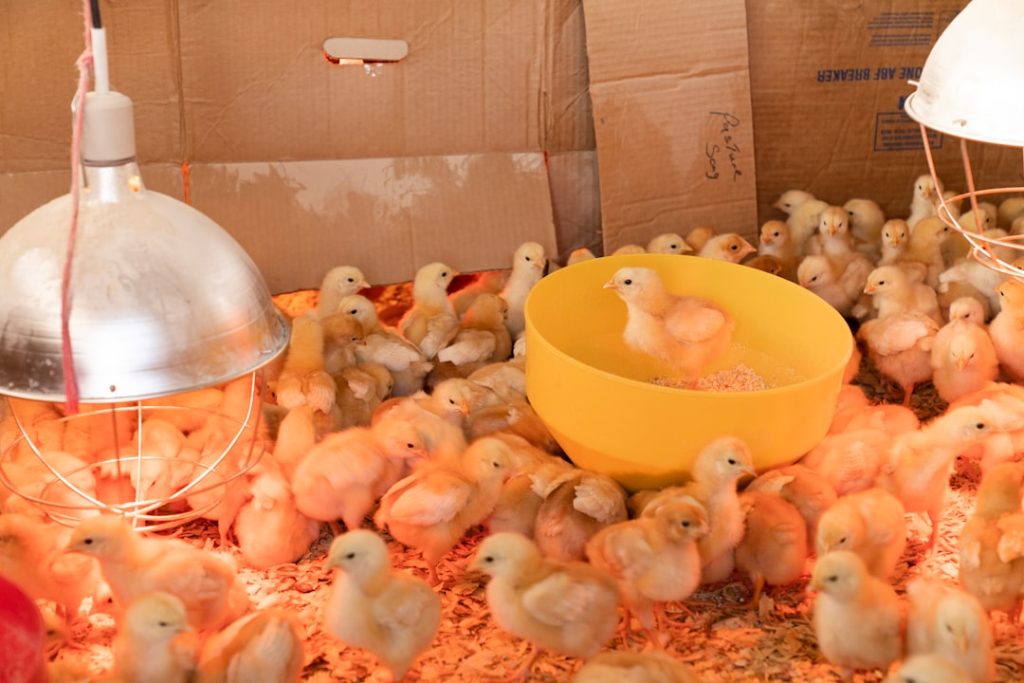Chicken farming played a significant role in medieval society, providing a vital source of food and income for many households. However, historical records indicate that there were instances of unexplained mass chicken deaths during this period, which caused considerable concern among farmers and local communities. The cause of these mysterious chicken deaths has been a subject of scholarly investigation for many years.
Researchers have proposed various theories to explain the phenomenon, ranging from infectious diseases to environmental factors. Some early accounts attributed the deaths to supernatural causes, reflecting the beliefs and superstitions of the time. These historical events have important implications for our understanding of poultry health and management.
By studying the medieval chicken deaths, researchers can gain insights into potential threats to poultry populations and develop strategies to prevent similar occurrences in modern farming practices. The mystery of the medieval chicken deaths serves as a reminder of the complex relationship between humans and domesticated animals throughout history. It highlights the importance of animal health in agriculture and the potential economic and social impacts of livestock diseases.
Ongoing research into these historical events continues to inform our approach to poultry farming and disease prevention in the present day.
Table of Contents
- 1 Identifying the Culprit: Understanding the Causes of the Deaths
- 2 Implementing Preventative Measures: Protecting Your Flock
- 3 Seeking Professional Help: Consulting a Veterinarian
- 4 The Role of Nutrition: Ensuring a Balanced Diet for Your Chickens
- 5 Environmental Factors: Creating a Safe and Healthy Living Space
- 6 The Future of Your Flock: Planning for Long-Term Health and Wellbeing
- 7 FAQs
- 7.1 What are some common reasons for chickens dying in a medieval setting?
- 7.2 How can I protect my chickens from predators in a medieval setting?
- 7.3 What are some common diseases that can affect chickens in a medieval setting?
- 7.4 What are some ways to improve the nutrition of chickens in a medieval setting?
- 7.5 How can I protect my chickens from harsh weather conditions in a medieval setting?
Key Takeaways
- The mysterious deaths of medieval chickens have puzzled historians and scientists for centuries.
- Understanding the causes of chicken deaths is crucial for protecting your flock and implementing preventative measures.
- Consulting a veterinarian is essential for seeking professional help in diagnosing and treating any health issues in your flock.
- Ensuring a balanced diet and creating a safe living space are key factors in maintaining the health and wellbeing of your chickens.
- Planning for the long-term health and wellbeing of your flock is essential for their future.
Identifying the Culprit: Understanding the Causes of the Deaths
Natural Factors: Disease and Environment
One possible explanation for the deaths could be an outbreak of infectious diseases, which were poorly understood and difficult to treat in medieval times. Poor sanitation and overcrowding in chicken coops may have contributed to the spread of illnesses among the flocks. Additionally, environmental factors such as extreme weather conditions or contaminated water sources could have also played a role in the sudden deaths of the chickens.
Toxic Substances and Predators
Another potential cause of the medieval chicken deaths could have been poisoning from toxic plants or substances present in the chickens’ environment. In medieval times, farmers may not have been aware of the harmful effects of certain plants or chemicals on their flocks. Furthermore, predators such as foxes, wolves, or birds of prey could have posed a threat to the chickens, leading to their untimely demise.
Lessons for Modern-Day Flock Management
Understanding the various potential causes of the medieval chicken deaths is crucial in developing effective preventative measures to protect modern-day flocks from similar tragedies. By recognizing the importance of proper sanitation, disease management, and environmental stewardship, we can work towards creating a safer and healthier environment for our chickens.
Implementing Preventative Measures: Protecting Your Flock

To safeguard your flock from potential threats, it is essential to implement preventative measures that address the various causes of the medieval chicken deaths. One crucial step is to prioritize good hygiene and sanitation practices within the chicken coop and surrounding areas. Regular cleaning and disinfection of the coop, as well as proper waste management, can help minimize the risk of infectious diseases spreading among the chickens.
Additionally, providing adequate space for the chickens to roam and ensuring proper ventilation can contribute to a healthier living environment for the flock. Another important preventative measure is to carefully monitor the chickens’ diet and water sources to prevent poisoning from toxic plants or substances. Familiarize yourself with common toxic plants in your area and remove them from the chickens’ environment.
It is also advisable to secure food and water containers to prevent contamination by harmful substances. Furthermore, implementing predator-proofing measures such as sturdy fencing and secure coop structures can help protect the flock from external threats.
Seeking Professional Help: Consulting a Veterinarian
In cases where the health of your flock is at risk, it is crucial to seek professional help from a veterinarian with expertise in poultry care. A qualified veterinarian can conduct thorough health assessments of the chickens, diagnose any potential illnesses or health issues, and provide appropriate treatment recommendations. Regular check-ups and consultations with a veterinarian can help ensure the overall wellbeing of your flock and address any concerns before they escalate into serious problems.
Additionally, a veterinarian can offer valuable guidance on disease prevention, vaccination protocols, and nutritional requirements for your chickens. They can also provide insights into best practices for maintaining a healthy living environment for your flock. By establishing a relationship with a trusted poultry veterinarian, you can access expert advice and support to help safeguard the health and longevity of your chickens.
The Role of Nutrition: Ensuring a Balanced Diet for Your Chickens
Proper nutrition plays a vital role in maintaining the health and wellbeing of your flock. A balanced diet that meets the nutritional needs of chickens is essential for supporting their immune system, promoting growth and development, and ensuring overall vitality. Providing high-quality commercial poultry feed that is formulated to meet the specific dietary requirements of chickens is a fundamental aspect of their nutrition.
Additionally, supplementing their diet with fresh fruits, vegetables, and grains can contribute to a diverse and nutritious food intake. It is important to monitor the chickens’ food consumption and adjust their diet as needed based on their age, breed, and individual nutritional needs. Adequate access to clean water is also crucial for proper hydration and digestion.
Furthermore, providing access to grit and oyster shell can support their digestive health and calcium intake. By prioritizing proper nutrition for your flock, you can help fortify their immune system and resilience against potential health challenges.
Environmental Factors: Creating a Safe and Healthy Living Space

Coop Design and Maintenance
Proper coop design and maintenance are critical factors in ensuring their safety and comfort. The coop should be well-ventilated, insulated, and protected from extreme weather conditions to provide a conducive living space for the chickens.
Hygiene and Space
Regular cleaning and disinfection of the coop, nesting boxes, and roosting areas can help prevent the spread of diseases and parasites. In addition to maintaining a clean living environment, it is important to provide adequate space for the chickens to move around freely and engage in natural behaviors such as scratching, dust bathing, and perching. Outdoor access to a secure run or free-range area can offer opportunities for exercise, mental stimulation, and access to natural foraging opportunities.
Predator Protection
Furthermore, protecting the flock from potential predators through secure fencing, predator-proof coop construction, and vigilant monitoring can help ensure their safety and security.
The Future of Your Flock: Planning for Long-Term Health and Wellbeing
As a responsible chicken owner, it is important to plan for the long-term health and wellbeing of your flock. This involves establishing proactive measures to prevent potential health issues, regular monitoring of their overall condition, and prompt intervention when necessary. Developing a comprehensive health management plan that includes vaccination schedules, parasite control measures, and regular health check-ups can help safeguard the future of your flock.
Furthermore, staying informed about advancements in poultry care, nutrition, and disease prevention can empower you to make informed decisions about the welfare of your chickens. Building a network of support within the poultry community, including fellow chicken owners, local agricultural extension services, and reputable poultry veterinarians, can provide valuable resources and guidance for maintaining a healthy flock. In conclusion, the mystery of the medieval chicken deaths serves as a reminder of the importance of understanding and protecting the health of our flocks.
By identifying potential causes such as infectious diseases, environmental factors, poisoning, and predators, we can implement preventative measures to safeguard our modern-day chickens. Consulting a veterinarian for professional guidance, prioritizing proper nutrition and creating a safe living environment are essential steps in ensuring the long-term health and wellbeing of our flocks. By planning for their future health needs and staying informed about best practices in poultry care, we can uphold our commitment to responsible chicken ownership and contribute to the welfare of our feathered companions.
If you’re struggling with keeping your chickens warm during the colder months, you may want to consider investing in a heater for your chicken coop. Poultry Wizard has a helpful article on the benefits of using a heater for a chicken coop, which can help prevent your chickens from dying due to the cold. Check out their article here for more information on how to keep your feathered friends safe and warm.
FAQs
What are some common reasons for chickens dying in a medieval setting?
Some common reasons for chickens dying in a medieval setting include predation by wild animals, disease, malnutrition, and harsh weather conditions.
How can I protect my chickens from predators in a medieval setting?
In a medieval setting, you can protect your chickens from predators by building sturdy coops and using fencing to keep out wild animals such as foxes, wolves, and birds of prey.
What are some common diseases that can affect chickens in a medieval setting?
Common diseases that can affect chickens in a medieval setting include avian flu, Newcastle disease, and coccidiosis. It is important to keep the chickens’ living area clean and provide them with proper nutrition to prevent these diseases.
What are some ways to improve the nutrition of chickens in a medieval setting?
In a medieval setting, you can improve the nutrition of chickens by feeding them a balanced diet of grains, seeds, and insects. Additionally, allowing the chickens to free-range and forage for food can also improve their nutrition.
How can I protect my chickens from harsh weather conditions in a medieval setting?
To protect chickens from harsh weather conditions in a medieval setting, you can provide them with shelter in the form of a sturdy coop or barn. Additionally, providing them with extra bedding and insulation during cold weather can help keep them warm.
Meet Walter, the feathered-friend fanatic of Florida! Nestled in the sunshine state, Walter struts through life with his feathered companions, clucking his way to happiness. With a coop that’s fancier than a five-star hotel, he’s the Don Juan of the chicken world. When he’s not teaching his hens to do the cha-cha, you’ll find him in a heated debate with his prized rooster, Sir Clucks-a-Lot. Walter’s poultry passion is no yolk; he’s the sunny-side-up guy you never knew you needed in your flock of friends!







